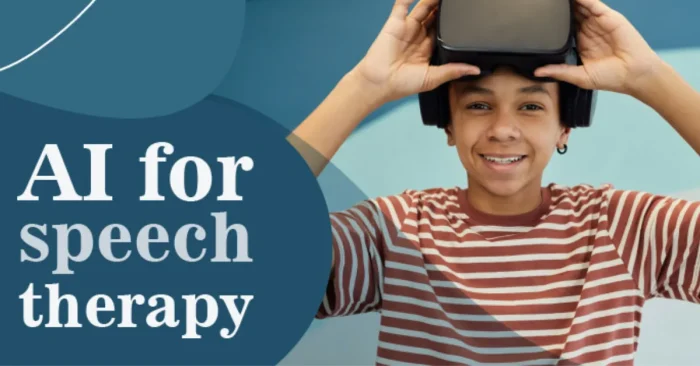Overview
AI tools for speech therapy are transforming how individuals with speech and language difficulties receive support. These tools use artificial intelligence to analyze speech patterns, provide instant feedback, and create personalized exercises. Unlike traditional therapy that requires constant human guidance, AI-driven apps and platforms offer 24/7 availability, making practice more flexible and consistent. Children, adults, and patients recovering from strokes or neurological conditions benefit from these solutions. With gamified learning, adaptive programs, and voice recognition, AI speech therapy tools make the process engaging and effective while complementing professional therapists’ efforts.
1. AI for Pronunciation Improvement
AI speech tools analyze voice recordings to detect errors in pronunciation. They provide immediate corrections and suggestions, allowing users to practice specific sounds. This feature is especially useful for children with articulation disorders and non-native speakers learning a new language. Continuous feedback helps improve clarity, fluency, and confidence in communication effectively.
2. AI-Powered Language Development
AI applications help children with delayed speech by introducing interactive language-building activities. These tools recommend words, phrases, and exercises suited to the child’s progress. By adapting in real time, AI ensures consistent improvement in vocabulary and sentence formation. Parents and therapists can track progress easily, ensuring a structured path toward better communication skills.
3. AI in Fluency Therapy
For individuals with stuttering or fluency challenges, AI tools provide real-time monitoring and feedback. They suggest breathing exercises, speech pacing techniques, and rhythm adjustments. Unlike manual observation, AI evaluates fluency patterns accurately, helping users reduce stuttering frequency. Over time, these tools boost confidence and encourage smoother, more natural communication.
4. AI for Accent Training
AI-driven speech therapy platforms also assist in accent modification. They compare user speech with native-like pronunciation and suggest precise corrections. This helps professionals, language learners, and individuals preparing for global opportunities. Accent training with AI is highly effective, as it provides personalized, repetitive practice without judgment or pressure.
5. AI for Stroke Recovery
Patients recovering from strokes often face difficulties in speech and language. AI-powered therapy apps provide customized exercises to rebuild speech skills. These platforms track improvements, adapt difficulty levels, and support consistent practice at home. Combined with professional guidance, AI therapy accelerates recovery and helps patients regain communication independence.
6. AI in Child Speech Therapy
Children with speech delays, autism, or learning disorders benefit from AI tools that make therapy fun and engaging. Gamified exercises, interactive storytelling, and voice-based feedback encourage participation. Parents can also use these tools at home to reinforce therapy sessions, making AI an excellent supplement to traditional pediatric speech therapy.
7. AI for Voice Disorders
AI systems help individuals with voice disorders by analyzing pitch, tone, and vocal strain. They recommend exercises to strengthen vocal cords and reduce stress. Teachers, singers, and professionals who use their voice extensively can use AI to maintain vocal health. This makes AI an essential tool for both therapy and prevention.
8. AI-Powered Multilingual Therapy
AI tools support multiple languages, making therapy accessible to people worldwide. They help non-native speakers practice both fluency and pronunciation in their chosen language. This is particularly helpful for multilingual families and communities where access to local therapists may be limited. AI ensures inclusivity and global accessibility for speech therapy support.
9. AI in Progress Tracking
AI platforms record speech sessions and generate progress reports automatically. This allows therapists, parents, and users to track improvements in accuracy, fluency, and comprehension over time. Data-driven insights help refine therapy strategies, ensuring continuous improvement. Consistent progress tracking enhances accountability and motivates users to keep practicing regularly.
10. AI for Personalized Speech Exercises
AI customizes therapy exercises based on user needs, whether targeting specific sounds, fluency, or vocabulary. Unlike one-size-fits-all approaches, AI personalizes tasks for faster and more effective results. Adaptive learning ensures the exercises grow with the individual, providing ongoing challenges and measurable improvement in speech therapy outcomes.
(FAQs)
Q1: Can AI replace human speech therapists?
No, AI complements professional therapy by offering practice and feedback. Human therapists are still essential for diagnosis and specialized guidance.
Q2: Are AI speech therapy apps suitable for children?
Yes, many apps are designed specifically for children, with interactive and playful exercises to keep them engaged.
Q3: Can AI help with stuttering?
Yes, AI tools analyze speech patterns, provide fluency strategies, and suggest pacing techniques to reduce stuttering effectively.
Learn More About AI Course https://buhave.com/courses/learn/ai/






